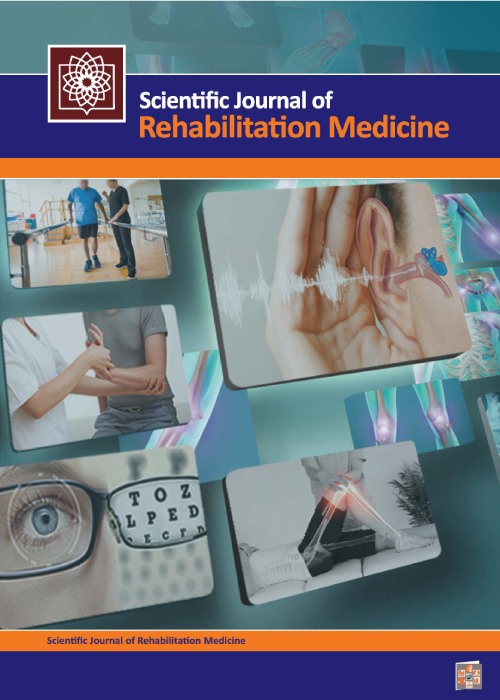Evaluation of Neonate Hearing Screening in Sayad-Shirazi Hosbital in Gorgan
Author(s):
Abstract:
Background And Aims
Hearing loss is one of the most common congenital disorders in newborns and infants. Approximately 1-4 of 1,000 neonates are born with bilateral profound and permanent congenital hearing loss. Therefore, the diagnosis of hearing loss without performing hearing screening at birth is not possible. Otoacoustic Emission (OAE) is one of the tests to diagnose hearing loss and early intervention in neonates. The aim of the present study was to evaluate neonate hearing screening in Sayad-Shirazi Hospital in Gorgan to identify and early diagnose hearing impairment and to prescribe hearing aids.Materials And Methods
As a cross-sectional study, the investigation was performed on all neonates in Sayad Shirazi Hospital. After completing the questionnaire, the first evaluation (OAE) was performed on all alive infants in the first 48 hours of birth. The neonates were re-evaluated within the second months of birth if they were referred. The neonates with failed responses were referred to perform ABR. Data was analyzed using SPSS (version 22).Results
TEOAE tests were performed on 4453 infants in the first 48 hours of birth. A total of 2138 (48 %) infants were females and 2315 (52 %) were males. About 32% of infants had pass response to OAE and 68% of them had no responses (Refer). The second OAE test was repeated before two months of birth. From among 3024 neonates, 92% had response and 104 neonate had no response. ABR test was performed on 104 infants. Only three neonates had abnormal ABR and hearing loss was identified. Three neonates had hearing loss: parents of one of these neonates were relatives, another neonates suffered from high bilirubin, infection, and prematurity, and the third infant had moderate to severe hearing loss without any reason. Hearing aid was prescribed to these three children and two were referred to a consultant for cochlear implant.Conclusion
According to the results of the current study and similar studies in Iran and other countries, the need to implement a comprehensive plan for neonatal hearing screening and early intervention and early detection of hearing loss is important. This can also reduce the considerable costs that are spent for special education for these children.Keywords:
Hearing Loss , Hearing Screening , Neonate , OAE , AABR
Language:
Persian
Published:
Scientific Journal of Rehabilitation Medicine, Volume:6 Issue: 1, 2017
Pages:
114 to 121
magiran.com/p1696243
دانلود و مطالعه متن این مقاله با یکی از روشهای زیر امکان پذیر است:
اشتراک شخصی
با عضویت و پرداخت آنلاین حق اشتراک یکساله به مبلغ 1,390,000ريال میتوانید 70 عنوان مطلب دانلود کنید!
اشتراک سازمانی
به کتابخانه دانشگاه یا محل کار خود پیشنهاد کنید تا اشتراک سازمانی این پایگاه را برای دسترسی نامحدود همه کاربران به متن مطالب تهیه نمایند!
توجه!
- حق عضویت دریافتی صرف حمایت از نشریات عضو و نگهداری، تکمیل و توسعه مگیران میشود.
- پرداخت حق اشتراک و دانلود مقالات اجازه بازنشر آن در سایر رسانههای چاپی و دیجیتال را به کاربر نمیدهد.
In order to view content subscription is required
Personal subscription
Subscribe magiran.com for 70 € euros via PayPal and download 70 articles during a year.
Organization subscription
Please contact us to subscribe your university or library for unlimited access!


